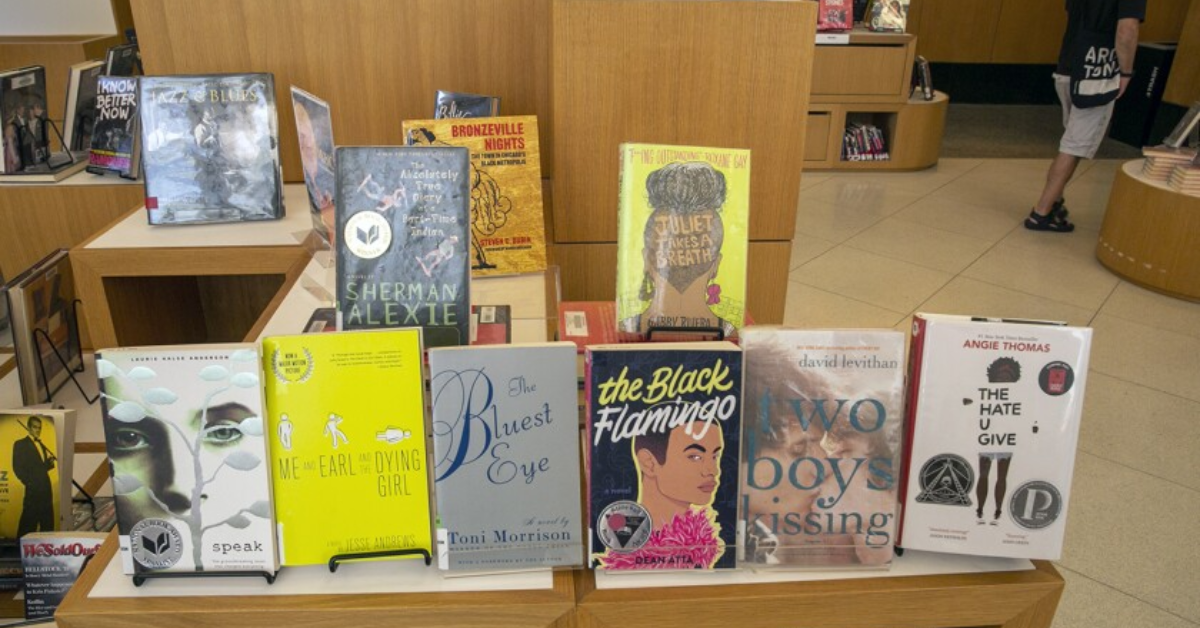Conservative lawmakers want to make it harder for people to read books they don’t like by passing a bill that critics say would let the state’s people in charge of school curriculum reject textbooks based on their political and religious views.
“It is imperative that we empower parents and their elected voices rather than textbook publishers in regards to the content of our children’s textbooks,” Leo-Wilson wrote in a tweet.
In the last year, Texas has banned more books at the county level than any other state. Most of the books that have been banned are about race, racism, abortion, and the LGBTQ community. Most of the time, these books came from school libraries and could be read or not. HB 1804 could be the first move in a while to go after the textbooks that teachers use to teach.
Senate Bill 13, from Sen. Angela Paxton, R-McKinney, tries to limit the kinds of books that kids can read. It has already passed the Senate and wants to keep se*ually explicit books off of school library shelves. House members passed House Bill 900, which was a top priority for House Speaker Dade Phelan. It would take se*ually explicit books off school library shelves and require parental permission before a student can check out some books with se*ual themes.
Below we have given a tweet about It is imperative that we empower parents and their elected voices rather than textbook publishers in regard to the content of our children’s textbooks. You can see below:
It is imperative that we empower parents and their elected voices rather than textbook publishers in regards to the content of our children's textbooks. @cvasut did a remarkable job laying out HB 1804. #txlege https://t.co/pwSGV4hSNT pic.twitter.com/fxtQ1SCyWM
— Rep. Terri Leo-Wilson (@TerriLeoWilson) April 21, 2023
In this setting of the Texas legislature has a long list of bills that target LGBTQ people. HB 1804 is one of them. So far, the Senate has passed a bill that, with very few exceptions, would limit se*ual orientation and gender identity lessons, campus events, and teacher advice in public and charter schools up to the 12th grade. It also passed a bill that would stop public libraries from getting money if drag queens read to kids there.
The Texas Essential Knowledge and Skills are the state standards for what children need to learn in school. They are set by the State Board of Education, which is made up of 15 people who are chosen to the board. At the moment, the board’s only requirement for textbooks is that they are free of factual mistakes and appropriate for the grade level and subject being taught. They must also have been reviewed by academic experts. School districts don’t have to use the books that have been accepted by the board.
The bill would give the SBOE back a power that lawmakers took away more than a decade ago. It could also bring back an old debate. Before 2011, the board could reject texts based on subjective criteria. After the board suggested textbooks that questioned the theory of evolution, lawmakers took away this power. You see that The Overnight Cold Front Will Bring Storms To North Texas.
This ruling would be changed by HB 1804. The bill says that the textbooks chosen by the state board must show how scientific ideas like the theory of evolution have both good and bad points. Marti Bier, vice president of programs at the Texas Freedom Network, an organization that works for more inclusive classroom materials, said that the bill would make it harder for SBOE members to choose books because they would have to use subjective criteria. They said that the bill’s two-sided look at scientific ideas would make it possible for the board to approve textbooks that give creationism and science equal weight.
“We condemn the actions of radical right-wing members of the state House who are seeking to allow textbook censorship based on the personal and political beliefs of extremist SBOE members,” Bier said.
The bill also says that textbooks can’t include works that support civil unrest, social strife, or breaking the law. It also says that they have to show both sides of any political or social force in history.
The SBOE has moved to the right over the past few months. In November, new members were chosen who ran against teaching “critical race theory” in schools. Critical race theory is a field of study at the college level that looks at why racism is still a part of American law and society so many years after the civil rights movement. It is not taught in elementary or middle schools in Texas, but conservatives have used the term as a shorthand way to criticize what they see as a liberal bias in how schools teach kids about race.

Rep. James Talarico, D-Austin, said at the meeting on Thursday that the bill worries him because it could lead to textbooks that show two sides of the Civil War, slavery, or the Holocaust. The bill’s backers said that it would make it clear to textbook publishers what they should include in their goods when they show them to the state board. You also check Texas County Considers Closing Library After Federal Judge Orders Banned Books Back To Circulation.
“Having these parameters will give transparent expectations to publishers to ensure they not only follow the TEKS but create appropriate content that educates and presents both sides of the issue,” said Mary Castle, director of government relations for Texas Values Action, the legislative arm of Texas Values, a conservative religious advocacy group.
Jonathan Covey, policy director for Texas Values, said the bill would refocus schools on teaching the basics such as math and science while decreasing the money and time spent “creating social justice warriors.”
“We have a long way to go, but the way to get there is to come together as Texans and Americans and not encourage division,” he said.
Chloe Latham Sikes, deputy director of policy at the Intercultural Development Research Association, said in a statement that the rule against condoning civil disorder could make it possible to use materials that don’t talk about things like the Rodney King riots of 1992 and the U.S. Capitol insurrection on January 6, 2021.
Billy Beard, a private citizen who spoke out against the bill, said that its language is so broad that texts might be tempted to leave out historical events like the Boston Tea Party because they are seen as acceptable acts of violence. CEO of Equality Texas Ricardo Martinez said that the bill would hurt young gay people who do better in school when they can see themselves in books and the classroom.
“If any of these supports are taken away, it will be harder for young LGBTQ people to feel like they belong,” Martinez said. “Not having these supports can lead to less success in school, more absences, and less interest in and success in postsecondary education.”



